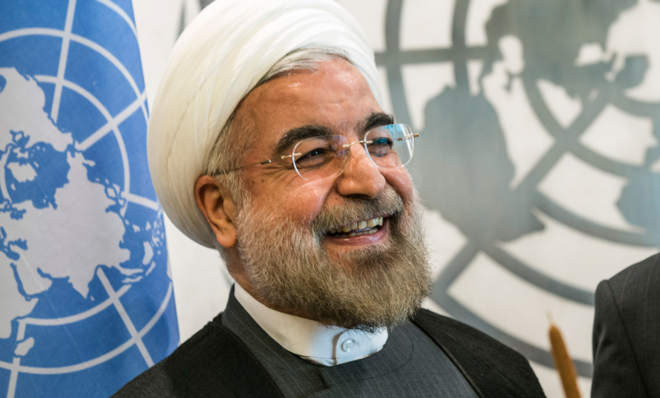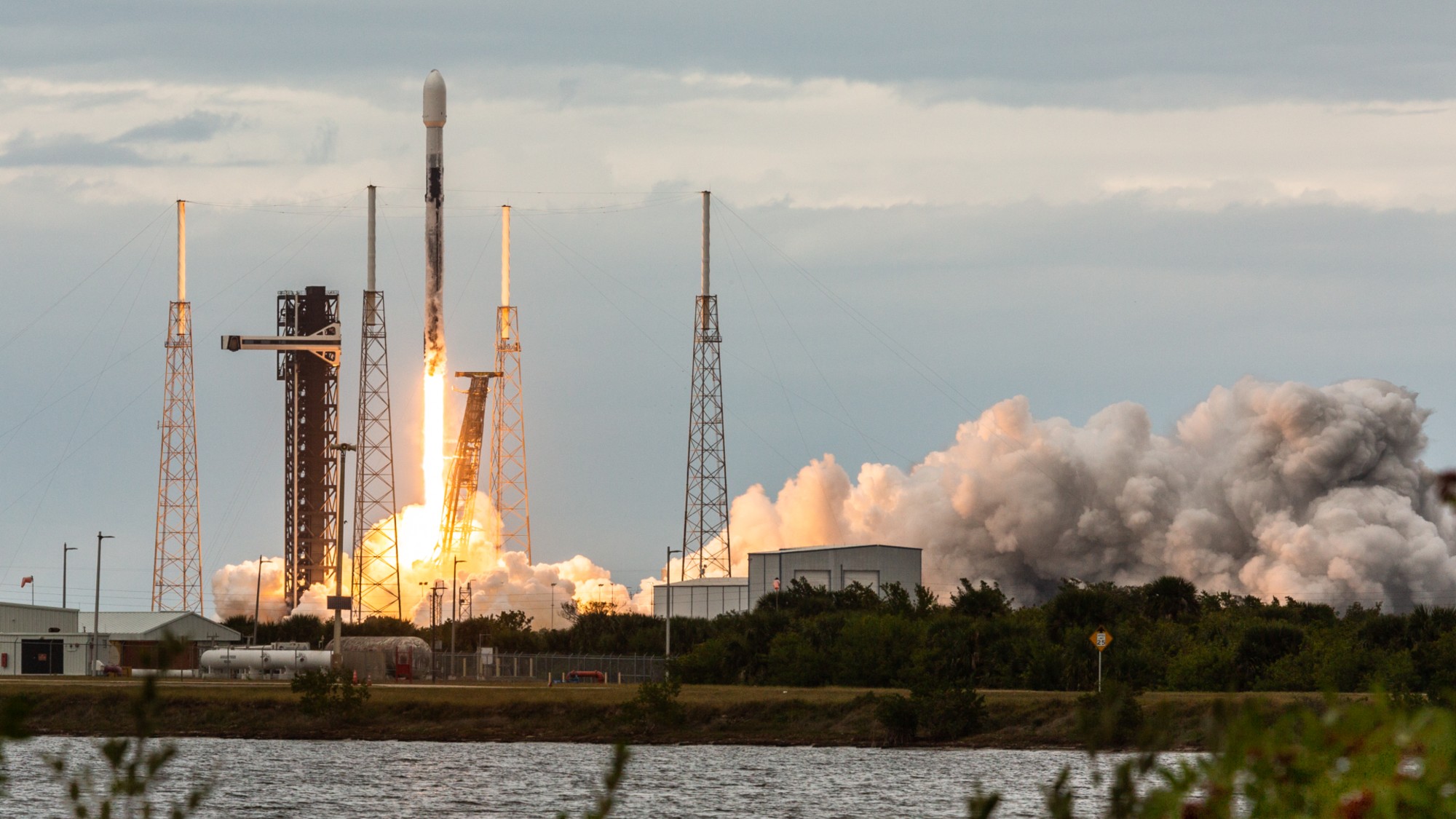How Iran is winning the U.S. government shutdown
With U.S. sanctions monitors furloughed, it's a great time to launder some cash and crank up those centrifuges, Tehran


In about two weeks, diplomats from the U.S., Russia, China, Britain, France, and Germany will sit down in Geneva with their Iranian counterparts to discuss Iran's nuclear program. In a best-case scenario, Iran will agree to international oversight of its nuclear activities in exchange for the easing of tough economic sanctions.
The sanction regime has significantly debilitated the Iranian economy, and is seen as the central factor behind Iranian President Hassan Rouhani's much-ballyhooed charm offensive. After a phone call between Rouhani and President Obama, Western diplomats are cautiously optimistic that a breakthrough on Iran's nukes might finally be on the horizon.
But as with most issues, Republicans don't really trust Obama to get this right. Two months ago, the GOP-led House approved tighter sanctions against Iran. While that bipartisan bill awaits Senate action, Rep. Trent Franks (R-Ariz.) has introduced another bill that would, among other measures, authorize Obama to use military force to prevent Iran from developing nukes.
The Week
Escape your echo chamber. Get the facts behind the news, plus analysis from multiple perspectives.

Sign up for The Week's Free Newsletters
From our morning news briefing to a weekly Good News Newsletter, get the best of The Week delivered directly to your inbox.
From our morning news briefing to a weekly Good News Newsletter, get the best of The Week delivered directly to your inbox.
The idea, Franks tells The Guardian, is to strengthen the president's hands in the Geneva talks and "inject into the discussion the importance of Mr. Obama not making a bad deal — because a bad deal is worse than no deal at all."
However, as it turns out, House Republicans may have just done Iran a potentially massive favor.
Thanks to the government shutdown, the two programs in charge of overseeing sanctions — the Treasury Department's Office of Foreign Asset Control (OFAC) and the State Department's sanctions monitoring agency — have been "completely, virtually, utterly depleted," Undersecretary of State Wendy Sherman told the Senate Foreign Relations Committee on Thursday. Furloughs at the NSA and CIA are also hampering intelligence on sanctions violations, she said.
The Daily Beast's Josh Rogin and Eli Lake have some numbers that show the scope of the furloughs: 90 percent of the OFAC's self-explanatory Office of Terrorist Financing and Intelligence (TFI) are out, and only 30 of the 345 employees of the Financial Crimes Enforcement Network (FinCEN) survived the furloughs. FinCEN's network of banks and the OFAC "are two of the most potent tools the U.S. government has used to pressure Iran," say Rogin and Lake.
A free daily email with the biggest news stories of the day – and the best features from TheWeek.com
So, what might a lapse in sanctions enforcement mean? In broad strokes, says CNN's Jamie Crawford, the furloughs mean the OFAC "is currently unable to sustain its core functions of issuing new sanctions against individuals and entities deemed to be assisting the governments of Iran or Syria, as well as terrorist organizations, narcotics cartels, or proliferators of weapons of mass destruction."
Mark Dubowitz of the pro-Israel Foundation for the Defense of Democracies is more specific, and more alarmist. "At a time where sanctions pressure is the only instrument of U.S. policy that is actually working to persuade the Iranian regime to negotiate over its illicit nuclear program, the Treasury furloughs could not be timed worse," he tells CNN. "With hyper-partisan politics sidelining Treasury's G-Men, Iran's Supreme Leader is getting his sanctions relief without giving up any nuclear concessions."
Speaking to The Daily Beast, Dubowitz predicts that thanks to the furloughs, "the Iranians will engage in massive sanctions busting to try to replenish their dwindling foreign exchange reserves." If the OFAC isn't following Iran's money trail, he adds ominously, "you’ve extended the economic runway of the Iranian regime and increased the likelihood that they could reach nuclear breakout sooner rather than later."
The State Department's Sherman says the U.S. sanctions cops have a little breathing room: "We believe that we have some time, but we don't have a lot of time."
But nobody is arguing that this is anything but good for Iran.
No wonder other countries are laughing at us.
Peter has worked as a news and culture writer and editor at The Week since the site's launch in 2008. He covers politics, world affairs, religion and cultural currents. His journalism career began as a copy editor at a financial newswire and has included editorial positions at The New York Times Magazine, Facts on File, and Oregon State University.
-
 A running list of the US government figures Donald Trump has pardoned
A running list of the US government figures Donald Trump has pardonedin depth Clearing the slate for his favorite elected officials
-
 Ski town strikers fight rising cost of living
Ski town strikers fight rising cost of livingThe Explainer Telluride is the latest ski resort experiencing an instructor strike
-
 ‘Space is one of the few areas of bipartisan agreement in Washington’
‘Space is one of the few areas of bipartisan agreement in Washington’Instant Opinion Opinion, comment and editorials of the day
-
 Bari Weiss’ ‘60 Minutes’ scandal is about more than one report
Bari Weiss’ ‘60 Minutes’ scandal is about more than one reportIN THE SPOTLIGHT By blocking an approved segment on a controversial prison holding US deportees in El Salvador, the editor-in-chief of CBS News has become the main story
-
 Has Zohran Mamdani shown the Democrats how to win again?
Has Zohran Mamdani shown the Democrats how to win again?Today’s Big Question New York City mayoral election touted as victory for left-wing populists but moderate centrist wins elsewhere present more complex path for Democratic Party
-
 Millions turn out for anti-Trump ‘No Kings’ rallies
Millions turn out for anti-Trump ‘No Kings’ ralliesSpeed Read An estimated 7 million people participated, 2 million more than at the first ‘No Kings’ protest in June
-
 Ghislaine Maxwell: angling for a Trump pardon
Ghislaine Maxwell: angling for a Trump pardonTalking Point Convicted sex trafficker's testimony could shed new light on president's links to Jeffrey Epstein
-
 The last words and final moments of 40 presidents
The last words and final moments of 40 presidentsThe Explainer Some are eloquent quotes worthy of the holders of the highest office in the nation, and others... aren't
-
 The JFK files: the truth at last?
The JFK files: the truth at last?In The Spotlight More than 64,000 previously classified documents relating the 1963 assassination of John F. Kennedy have been released by the Trump administration
-
 'Seriously, not literally': how should the world take Donald Trump?
'Seriously, not literally': how should the world take Donald Trump?Today's big question White House rhetoric and reality look likely to become increasingly blurred
-
 Will Trump's 'madman' strategy pay off?
Will Trump's 'madman' strategy pay off?Today's Big Question Incoming US president likes to seem unpredictable but, this time round, world leaders could be wise to his playbook
